<Back to Index>
- Composer William Elden Bolcom, 1938
- Composer John Corigliano, 1938
- Composer Zygmunt Krauze, 1938
PAGE SPONSOR
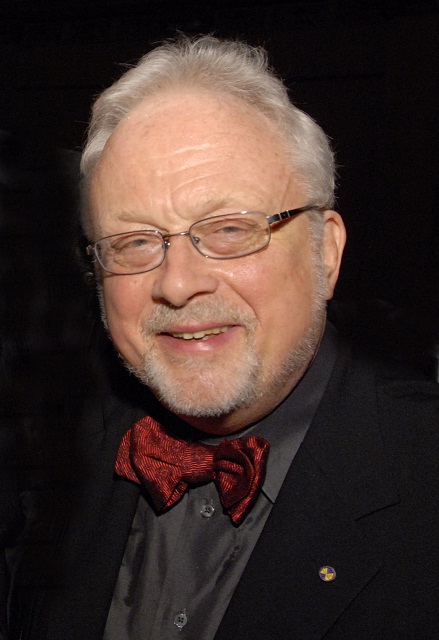
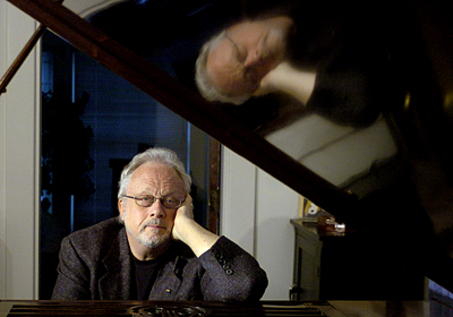
William Elden Bolcom (May 26, 1938) is an American composer and pianist. He received the Pulitzer Prize, the National Medal of Arts, two Grammy Awards, the Detroit Music Award and was named 2007 Composer of the Year by Musical America. Bolcom taught composition at the University of Michigan from 1973 - 2008. He is married to mezzo - soprano Joan Morris.
Bolcom was born in Seattle, Washington. At the age of 11, he entered the University of Washington to study composition privately with George Frederick McKay and John Verrall and piano with Madame Berthe Poncy Jacobson. He later studied with Darius Milhaud at Mills College while working on his Master of Arts degree, with Leland Smith at Stanford University while working on his D.M.A., and with Olivier Messiaen at the Paris Conservatoire, where he received the 2ème Prix de Composition.
Bolcom won the Pulitzer Prize for music in 1988 for 12 New Etudes for Piano. In the fall of 1994, he was named the Ross Lee Finney Distinguished University Professor of Composition at the University of Michigan. In 2006, he was awarded the National Medal of Arts. Notable students include John Edgar Berners, Gabriela Lena Frank and David Karl Gompper.
As a pianist, Bolcom performed and recorded frequently in collaboration with Joan Morris, whom he married in 1975. Bolcom and Morris recorded twenty albums together, beginning with After the Ball, a collection of popular songs from around the turn of the 20th century. Their primary specialties in both concerts and recordings were showtunes, parlor, and popular songs from the late 19th and early 20th century, by Henry Russell, Henry Clay Work, and others, and cabaret songs (often from failed musicals). As a soloist, Bolcom recorded his own compositions, as well as music by Gershwin and Milhaud.
Bolcom's compositions were recognized and highlighted at Michigan State University in their Michigan Writers Series.
Bolcom's earliest compositions employed serial technique, under the influence of Pierre Boulez, Karlheinz Stockhausen and Luciano Berio, whose music he particularly admired. In the 1960s he gradually began to embrace an eclectic use of a wider variety of musical styles. His goal was to erase boundaries between popular and art music.
Bolcom's setting of William Blake's Songs of Innocence and of Experience, a three - hour work for soloists, choruses, and orchestra culminated 25 years of work on the piece. Its premiere at the Stuttgart Opera in 1984 was followed by performances in Ann Arbor, Chicago's Grant Park, the Brooklyn Academy of Music, St. Louis, Carnegie Hall, and London's Royal Festival Hall, the latter performed by the BBC Symphony Orchestra under the direction of Leonard Slatkin. In 2006, a recording of it won 3 Grammy Awards for Best Choral Performance, Best Classical Contemporary Composition, and Best Classical Album on Naxos Records.
He composed three major operas, McTeague, A View From the Bridge, and A Wedding, all commissioned and premiered by the Lyric Opera of Chicago conducted by Dennis Russell Davies. All were composed with librettist Arnold Weinstein, sometimes in collaboration with other writers. McTeague, based on the 1899 novel by Frank Norris, with libretto by Weinstein, was premiered on October 31, 1992. A View from the Bridge, with libretto by Weinstein and Arthur Miller, was premiered October 9, 1999. A Wedding, based on the 1978 motion picture by Robert Altman and John Considine, with libretto by Weinstein and Altman, was premiered on December 11, 2004.
He also composed concertos such as Lyric Concerto for Flute and Orchestra for James Galway, the Concerto in D for Violin and Orchestra for Sergiu Luca, the Concerto for Clarinet and Orchestra for Stanley Drucker, and Concert Suite for alto saxophone and band, composed for University of Michigan professor Donald Sinta in 1998. He composed his concerto "Gaea for Two Pianos Left Hand, and Orchestra" for Gary Graffman and Leon Fleisher, both of whom suffered from debilitating problems with their right hands. It received its first performance on April 11, 1996 by the Baltimore Symphony conducted by David Zinman. The concerto is constructed so that it can be performed in one of three ways, with either piano part alone with reduced orchestra, or with both piano parts and the two reduced orchestras combined into a full orchestra. This structure mimics that of a similar three - in - one work by his teacher, Milhaud.
Bolcom's other works include eight symphonies, eleven string quartets, four violin sonatas, a number of piano rags (one written in collaboration with William Albright), four volumes of cabaret songs, three musical theater works ("Casino Paradise," "Dynamite Tonite," and "Greatshot"; all with Weinstein), and a one-act chamber opera, "Lucrezia," with librettist Mark Campbell. William Bolcom was also commissioned to write "Recuerdos" for Two Pianos by The Dranoff International Two Piano Foundation.
VocalEssence celebrated the music of William Bolcom with a two - week festival in Minneapolis and St. Paul, Minnesota in April 2007. Nine different performances and a number of master classes were part of the festival. The spotlight performance was of Bolcom's setting of William Blake's Songs of Innocence and of Experience, performed in Orchestra Hall in Minneapolis with over 400 musicians performing under projections of Blake's accompanying artwork by Wendell K. Harrington.
Eastern Michigan University Celebrated its 16th Biennial Contemporary Music Festival by featuring William Bolcom as a guest composer. The three day festival showcased a range of Bolcom's compositions as well as a discussion on "Musical Grass - Roots" led by Bolcom himself.
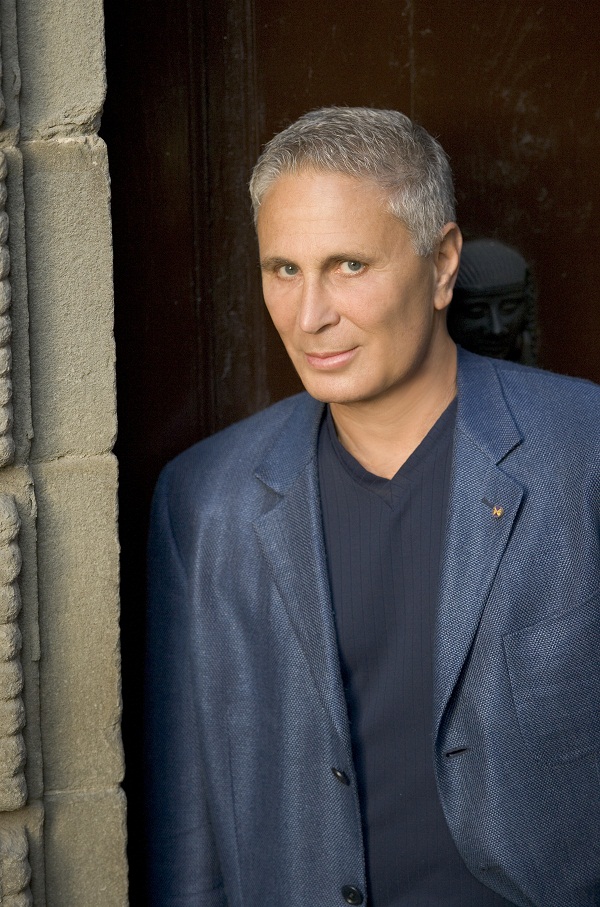
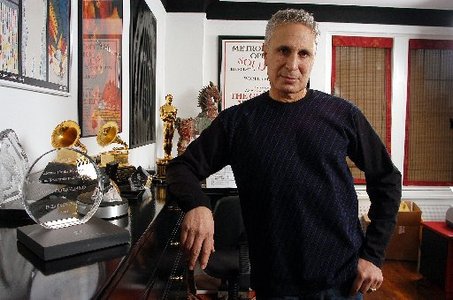
John Corigliano (16 February 1938, New York City, New York) is an American composer of classical music and a teacher of music. He is a distinguished professor of music at Lehman College in the City University of New York.
Italian American Corigliano was born to a musical family. His father, John Corigliano Sr., was concertmaster of the New York Philharmonic for 23 years, and his mother, Rose Buzen, is an accomplished educator and pianist. He was a former student of Otto Luening, Vittorio Giannini and Paul Creston. Corigliano attended P.S. 241 and Midwood High School in Brooklyn. He studied composition at Columbia University (BA 1959) and at the Manhattan School of Music. Before achieving success as composer, Corigliano worked as assistant to the producer on the Leonard Bernstein Young People's Concerts, and as a session producer for classical artists such as André Watts.
Most of Corigliano's work has been for symphony orchestra. He employed a wide variety of styles, sometimes even within the same work, but aimed to make his work accessible to a relatively large audience. He wrote symphonies, as well as works for string orchestra, and wind band. Additionally, Corigliano wrote concerti for clarinet, flute, violin, oboe, and piano; film scores; various chamber and solo instrument works, and the opera, The Ghosts of Versailles, which enjoyed a success at the premiere.
The younger Corigliano first came to prominence in 1964 when, at the age of 26, his Sonata for Violin and Piano (1963) was the only winner of the chamber music competition of the Spoleto Festival of Two Worlds in Italy. Support from Meet the Composer, the National Endowment for the Arts, and the Guggenheim Foundation followed, as did important commissions. For the New York Philharmonic he composed his Vocalise (1999), Concerto for Clarinet and Orchestra (1977) and Fantasia on an Ostinato (1986); for the Chamber Music Society of Lincoln Center, he wrote Poem in October (1970); for the New York State Council on the Arts he composed the Oboe Concerto (1975); for flutist James Galway he composed his Promenade Overture (1981), as well as the Symphony No. 2 (2001); the National Symphony Orchestra commissioned the evening-length A Dylan Thomas Trilogy (1960, rev. 1999). He also composed Chiaroscuro [Listen here], for two pianos tuned a quarter tone apart for The Dranoff International Two Piano Foundation.
In 1991 he was awarded the Grawemeyer Award for his Symphony No. 1 (1991), which was inspired by the AIDS crisis. In 2001 he received the Pulitzer Prize for his Symphony No. 2 (2001). Corigliano composed dramatic scores for the 1980 film Altered States, the 1985 film Revolution and Francois Girard's 1997 film, The Red Violin. The award winning score for Revolution is one of Corigliano's most impressive creations although it is less known, as it was never released in any recorded format; it has existed in a bootleg form until Varese Sarabande officially released the score for a limited time in December 2009 through their CD club, which was to be released in stores as a regular release in 2010. Corigliano did, however, export portions of the score for use in his first symphony. Portions of the score to The Red Violin were also used in his Violin Concerto (2003). In 1970 Corigliano teamed up with David Hess to create The Naked Carmen. In a recent communication with David Hess, Hess acknowledged that The Naked Carmen was originally conceived by Corigliano and himself as a way to update the most popular opera of our time referring to Bizet's Carmen. Mercury Records wanted the classical and popular divisions to work together and after a meeting with Joe Bott, Scott Mampe and Bob Reno it was decided to proceed with the project. In Hess's own words, the project was "a collective decision."
Among Corigliano's students are David S. Sampson, Eric Whitacre, Elliot Goldenthal, Edward Knight, Nico Muhly, Roger Bergs, Scott Glasgow, John Mackey, Avner Dorman, Mason Bates, Steven Bryant, Jefferson Friedman, Dinuk Wijeratne and David Ludwig. In 1996, The Corigliano Quartet was founded, taking his name in tribute. Corigliano lived with his husband, composer Mark Adamo, in New York City.
In 2011, Corigliano's "One Sweet Morning" premiered at Avery Fisher Hall for the New York Philharmonic, a commission commemorating the 10th anniversary of the September 11th Attacks. Ms. Stephanie Blythe performed the solo Mezzo Soprano role.
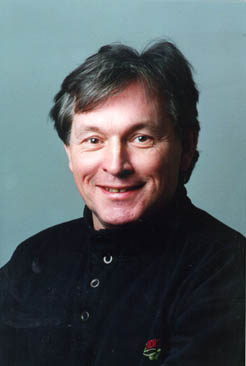
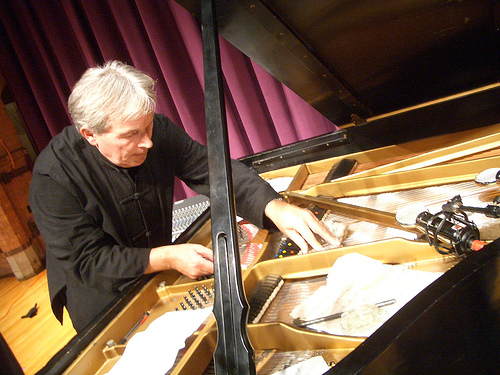
Zygmunt Krauze (b. September 19, 1938) is a Polish composer of contemporary classical music and pianist.
He studied piano with Maria Wilkomirska and composition with Kazimierz Sikorski, and studied with Nadia Boulanger in Paris in 1966 and 1967.
In 1967 he founded, in Poland, the Warsztat Muzyczny (Musical Workshop) ensemble, which performed new works of contemporary classical music, and commissioned works from more than 100 composers.
From 1982 to 1989 he served as the artistic advisor of IRCAM. He served as chairman of the International Society for Contemporary Music from 1987 to 1990. Since 2006 he was professor at the Fryderyk Chopin Music Academy in Warsaw.
He composed in a unistic style (called muzyka unistyczna in Polish); that is to say that his works avoid tension or contrast, and are as homogeneous as possible. This style was influenced by the Unistic paintings of Władysław Strzemiński.
In 1994 and 1997 Krauze performed with Chris Cutler's experimental music group, P53 at the 25th Frankfurt Jazz Festival in Germany (recorded and released on an album, P53), and the Angelica International Festival of contemporary music in Bologna, Italy. His music has been recorded by the Muzy, Dux, ORF, Nonesuch, Thesis, Musical Observations (CP2), Collins Classics, Recommended Records, and EMI labels.